20 Reasons To Eat Hummus Today: Health Benefits, Innovative Recipes, and More
I grew up in Goa, surrounded by many Lebanese and Israeli friends who I shared meals with. They would have hummus for breakfast, lunch, and dinner. Super fit, what struck me, particularly about their features was their quality skin and hair. When asked, they would say that their mothers, grandmothers, and great-grandmothers told them, “If you want glowing skin and lovely hair, you need to make hummus a part of your diet.”
These are not just folktales passed down. Science today records the umpteen benefits that hummus has for your health.
Yes, there has been a long-standing debate about the history of hummus. While the Greeks and the Middle Eastern folks continue to be at loggerheads about the origins of this beautiful dip that is loved across borders, one of the earliest records of a similar preparation dates back to the cookbooks of the 13th century in Cairo, Egypt. An inseparable and adored part of the mezze (a selection of small dishes) served as appetizers in much of West Asia, the Middle East, and the Balkans, hummus is a superfood that demands to be praised.
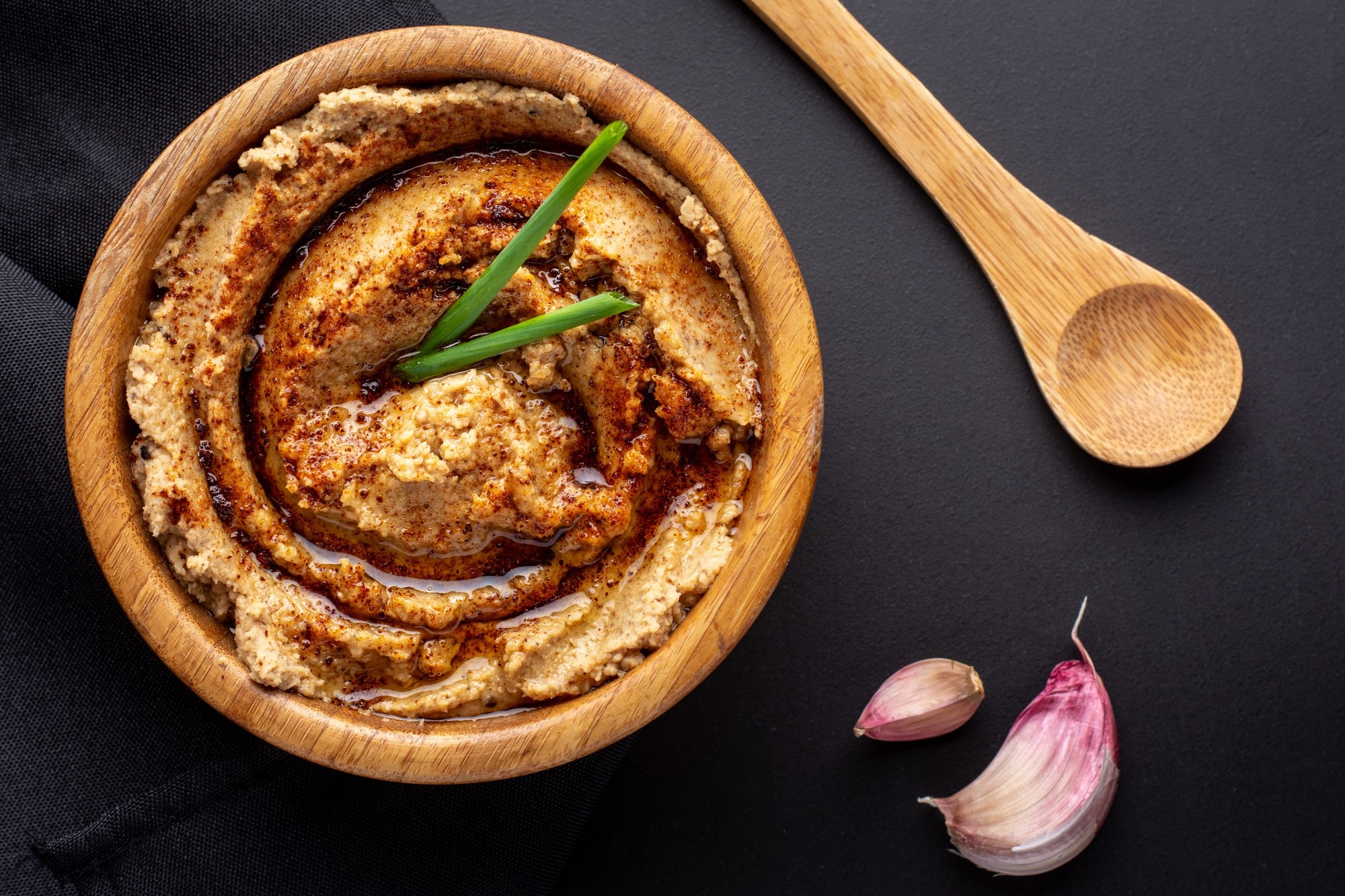
Here are 20 reasons to add hummus to your meals:
- This classic dip made from chickpeas, blended with tahini, olive oil, lemon juice, garlic, and grounded cumin is one of the most nutrient-dense foods you can add to your system.
- It is simple to make and takes as little as 10 to 15 minutes, provided you have soaked your chickpeas well overnight and pressure-cooked them. It uses readily accessible ingredients and is versatile. You can eat it for breakfast, lunch, dinner, or even as a snack. You can eat it cold or warm. It is a healthy snack for all age groups – children, adults, and senior citizens alike.
- It is loaded with vitamins A, D, B7, E, C, zinc, iron, and protein. It is also highly anti-inflammatory and rich in antioxidants. Studies reveal that hummus eaters have higher intakes of dietary fiber, polyunsaturated fatty acids, vitamin A, vitamin E, vitamin C, folate, magnesium, potassium, and iron as compared to non-consumers.
- It is a low glycemic index (GI) food rich in fiber that avoids sudden spikes and helps manage blood sugar levels in Type 2 diabetes.
- Hummus has healthy polyunsaturated and monounsaturated fats that play a role in improving cholesterol, reducing the risk of heart disease, and managing blood sugar.
- It has good extra virgin olive oil, a monounsaturated fat that boosts heart and brain health. Never heat extra virgin olive oil. It has a low smoking point. Add it raw to your hummus and salads. Subjecting it to heat can oxidize and release free radicals turning it inflammatory.
- For vegetarians looking for plant-based protein, hummus is an excellent source, thanks to chickpeas and the sesame seeds in its tahini paste.
- Loaded with manganese, folic acid, and copper, it is great for your brain, mouth, and reproductive health.
- Its rich iron and copper content is fantastic for women trying to conceive, pregnant, and women in their post-pregnancy phase. Hummus is also rich in folate which helps in preventing/reducing the threat of birth defects in babies, known as spina bifida. The amino acids in hummus uplift your mood and promote better sleep.
- Most people today are deficient in iron, which also explains their perpetually low energy levels. So, hummus rich in iron can be a good energy booster.
- Doctors today are screaming at the top of their voices about the importance of zinc because it plays a massive role in testosterone levels (in men) and immunity in general for everyone. Hummus is rich in zinc.
- Hummus is rich in the spectrum of B vitamins that are crucial for your neurological health, immunity, fat and weight loss, skin, and hair, among other factors.
- The omega-3 fatty acids in hummus boost skin health and stimulate hair growth. Chickpeas have manganese that helps prevent skin sagging and hair loss. Zinc works as an antioxidant to help delay aging and prevent hair thinning.
- The tahini paste in hummus has sesame seeds whose benefits range from managing high blood pressure, blood sugar levels, thyroid, menopause, arthritic flare-ups, alopecia, and more. If you look at several creams and shampoos, you will notice they contain sesame extracts because it works brilliantly internally as well as externally.
- Its dietary fiber also enhances digestion, regularizes bowel movements, keeps your stool quality in check, relieves constipation, and improves the health of your gut by feeding good bacteria.
- A part of this fiber in hummus also breaks down into short-chain fatty acids (SCFAs) that further break down into butyric acid. It is great to clean out your colon and maintain its health. Butyric acid helps build the integrity of your colon walls which can sometimes get destroyed when you cannot absorb or assimilate the right minerals. It causes the fecal matter to clog and stays stuck in our colon. Science links it to the prevention of colorectal cancers.
- It is powerful for weight loss and controlling your cravings because a small portion of hummus can keep you satiated for a longer time, thereby avoiding overeating. Research suggests those who consume chickpeas and hummus have lower BMIs and waist measurements. They are 53% less likely to be obese.
- Hummus and tahini have calcium, zinc, copper, phosphorus, magnesium, and selenium, which can boost bone mineral density.
- It is gluten-free and dairy free. It can be nut-free if you choose not to top it with nuts. So, it is great for those with many of these food intolerances.
Notes to remember
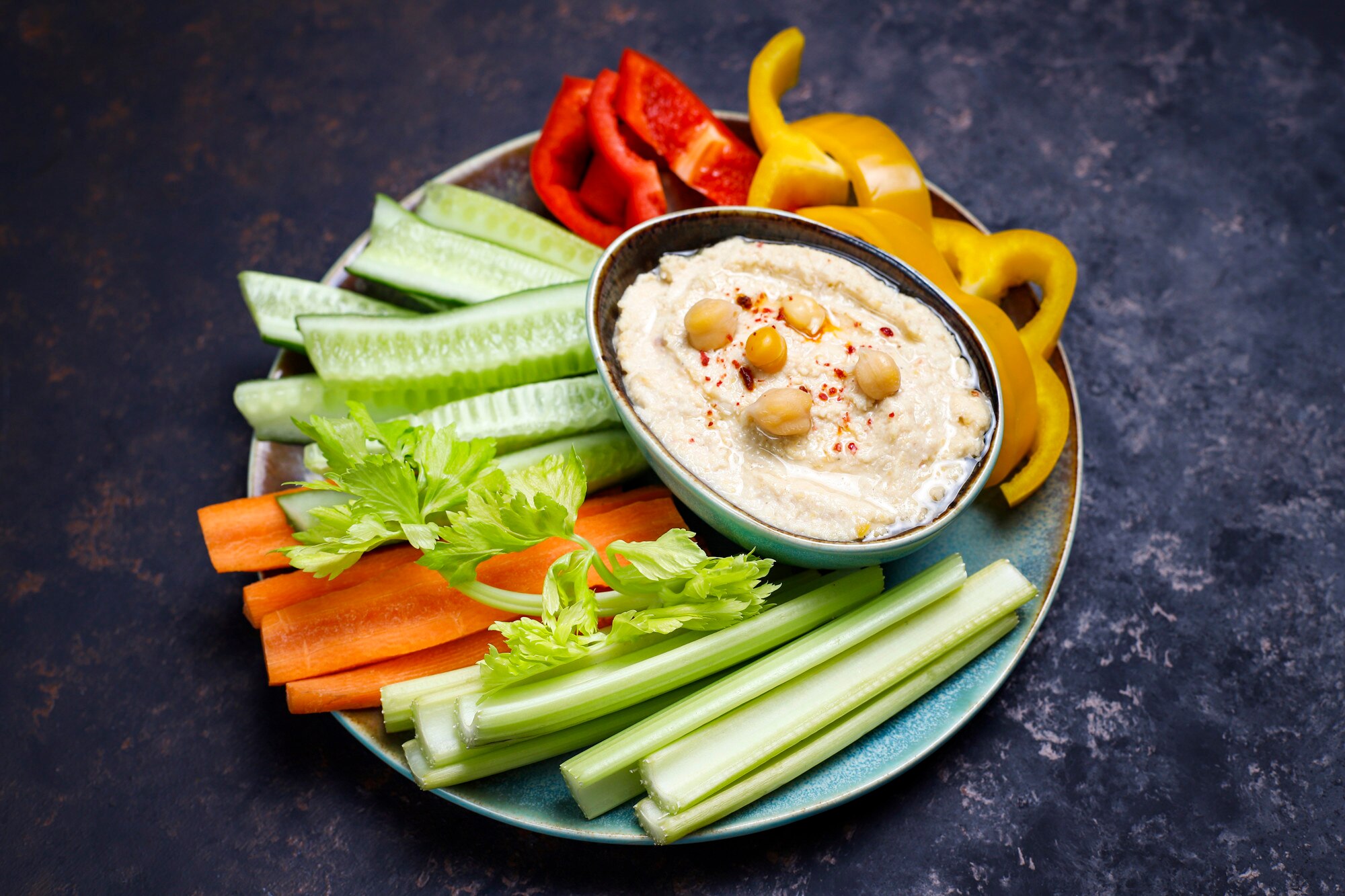
When you are making hummus, wash the chickpeas with warm water and then soak them overnight. While cooking them, add hing or asafoetida if it makes you gassy. If you have IBS, Crohn’s disease, or ulcerative colitis, eating hummus might not be the best for you, if it aggravates the gut or bloats you up. Wait until your gut gets stronger to eat it again. If you are allergic to chickpeas, don’t consume them. Make an informed choice.
You can give your hummus creative twists by adding spinach, basil, beetroot, or other veggies of your choice. If nuts suit you, you can top it with roasted pine nuts for that extra crunch and flavor. Non-vegetarians can also add chicken or fish. You can eat sliced/pickled cucumbers, carrots, radishes, and other raw vegetables dipped in hummus. It is a complete meal. Research reveals that hummus paired with vegetables and/or whole grains is a nutritious way for people to obtain their recommended servings of legumes.
Check out innovative hummus recipes you need to try today!
Classic hummus
(makes 1 ½ cups)
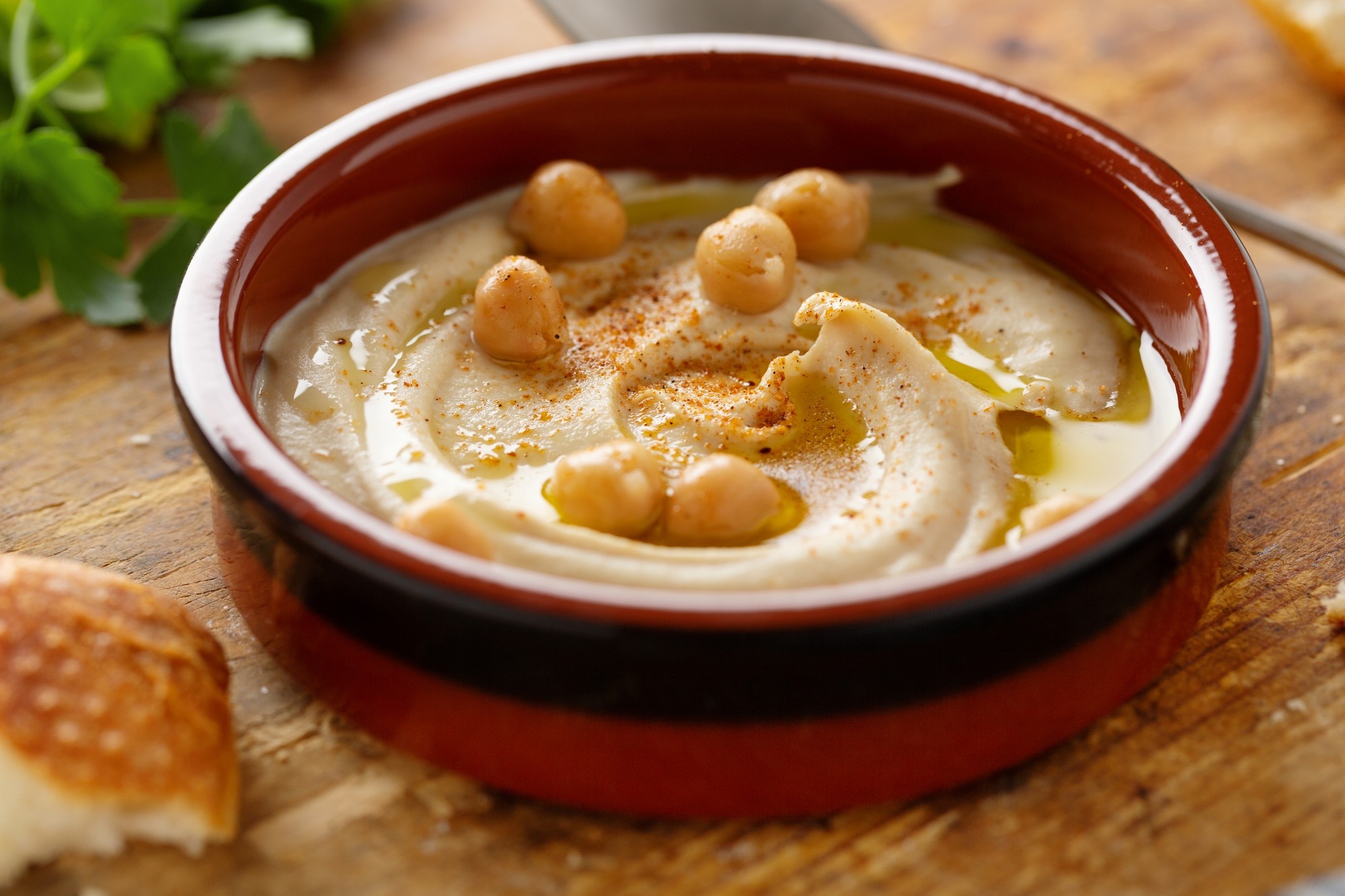
Ingredients:
- 1 ½ cups (250 grams) of cooked chickpeas.
- ¼ cup fresh lemon juice (1 large lemon)
- ¼ cup well-stirred tahini
- 1 small garlic clove (minced)
- 2 tbsp (30 ml) extra-virgin olive oil (plus more for serving)
- ½ tsp ground cumin
- Pink Himalayan salt to taste
- 2 to 3 tbsp water
Method:
- In a food processor, combine tahini and lemon juice and process for 1 minute. Scrape the sides and bottom and then process for 30 seconds more. This extra whip to the tahini will make the hummus smooth.
- Add the olive oil, minced garlic, cumin, and half a teaspoon of salt to the whipped tahini and lemon juice. Process for 30 seconds, scrape the sides and bottom, and then process another 30 seconds or until well blended.
- Add half of the cooked chickpeas to the food processor and process for 1 minute.Scrape sides and bottom of the bowl, then add remaining chickpeas and process until thick and quite smooth (1 to 2 minutes)
- Now slowly add 2 to 3 tablespoons of water until you reach the perfect consistency.
- Taste and adjust salt as needed.
- Serve hummus with a drizzle of olive oil and a dash of paprika.
- Store homemade hummus in an airtight container and refrigerate for up to one week.
How to make tahini?
(makes 1/2 cup)
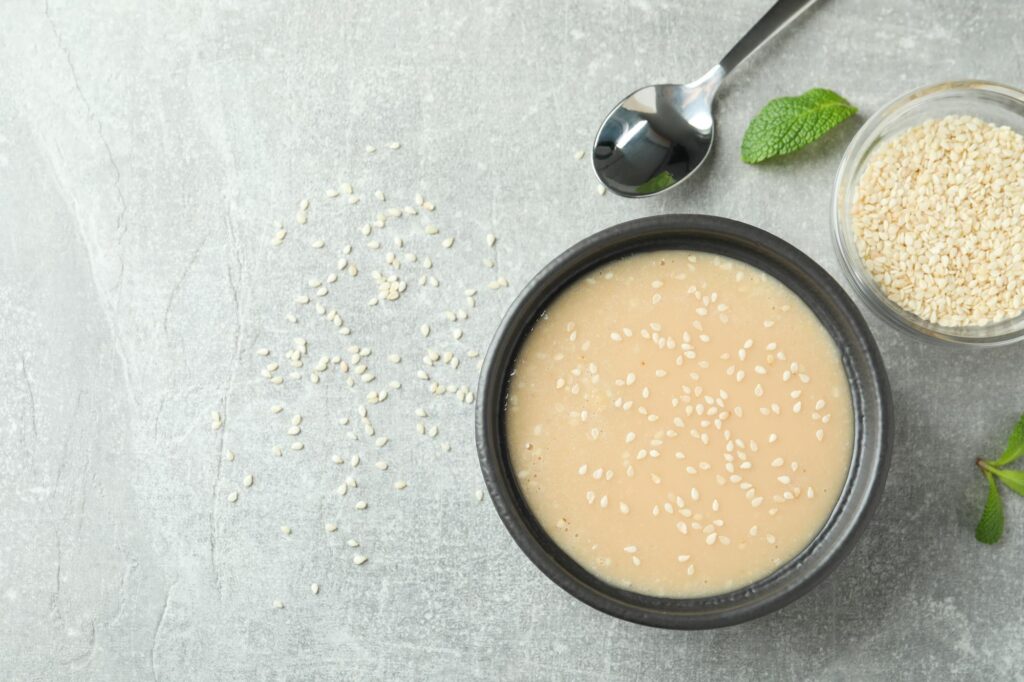
Ingredients:
- 1 cup sesame seeds (prefer hulled)
- 2 to 4 tbsp extra virgin olive oil
- Pinch of pink Himalayan salt (optional)
Method:
- Roast the sesame seeds first
- Add sesame seeds to a wide and dry saucepan over medium-low heat and roast (stirring constantly) until the seeds become fragrant and very lightly colored (not brown) for 3 to 5 minutes.
- Careful here! Sesame seeds can burn quickly.
- Transfer toasted seeds to a large plate.
- Make tahini next
- Add sesame seeds to a food processor. Process for a minute until it forms a crumbly paste.
- Add 3 tablespoons of the olive oil, then process for 2 to 3 minutes more, stopping to scrape the bottom and sides of the food processor a couple of times.
- Check the consistency. It should be smooth, not gritty, and should be pourable.
- You may need to process for another minute or add the additional tablespoon of olive oil.
- Taste the tahini and then add salt as per requirement. Process for 5 to 10 seconds for it to blend well.
- You can store this mixture for up to a month.
Want to be innovative? Try these hummus variations:
Beetroot Hummus
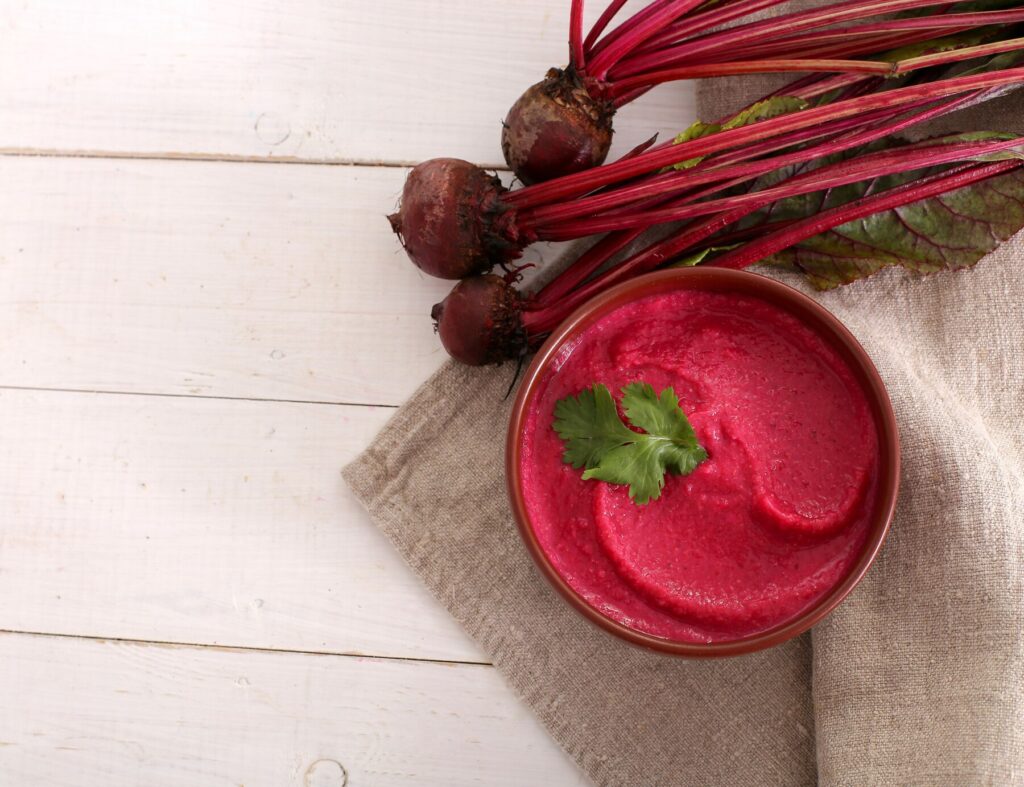
Ingredients:
- 1 small boiled beetroot
- 1 cup soaked and cooked chickpeas (soak chickpeas for 10 hours. Change the water in regular intervals)
- 1/2 large lemon (juiced)
- Pink Himalayan salt and black pepper – as per choice
- 2 large cloves of garlic (minced)
- 2 heaped tbsp tahini
- 3/4 cup extra virgin olive oil
Method:
- Blend the boiled beetroot, followed by cooked chickpeas.
- Add garlic, tahini, lemon, tahini, salt, and pepper.
- Add oil and blend it again.
- Drizzle some olive oil and roasted cumin powder.
- Hummus is ready to serve.
Broccoli hummus
Ingredients:
- 2 cups broccoli florets (chopped)
- 2 tbsp tahini paste
- ¼ cup olive oil (extra-virgin)
- 3 tbsp water (same water in which chickpeas were cooked)
- 2 tbsp lime juice
- 2 cloves garlic
- 1 ½ cups cooked chickpeas
- ¼ tsp cumin
- ½ tsp pink Himalayan salt
Method:
- Bring water to boil in a small saucepan, add broccoli florets and cook for 2 to 3 minutes.
- Remove from heat and drain water using a colander.
- Place broccoli florets in a food processor with tahini paste (check tahini recipe), olive oil, water, lime juice, and garlic.
- Process until smooth. Scrape down the sides of the food processor.
- Add chickpeas, cumin, and salt. Process until smooth.
- Serve immediately or keep in the refrigerator for 3 to 5 days.
Carrot hummus
Ingredients:
- 1 cup cooked chickpeas
- 1 cup carrots (roughly chopped)
- 1 tbsp lemon juice
- 2 tsp garlic paste
- ½ tsp ground cumin
- ½ tsp turmeric
- ½ tsp pink Himalayan salt
- 1 teaspoon dried basil
- 2 tablespoons tahini
- 2 to 4 tbsp water for desired consistency
- 1 to 2 tbsp extra virgin olive oil to drizzle on top
Method:
- Place all ingredients except the water and olive oil in a food processor (or blender) and pulse until combined.
- Remove the lid and stir ingredients to push down anything that has made its way to the top.
- Add water 1 tablespoon at a time until you get the desired consistency.
- Drizzle olive oil over the top before serving.
Peas hummus
Ingredients:
- 1 cup cooked chickpeas
- 1 cup boiled green peas
- 2 tbsp tahini
- 2 tbsp chopped fresh mint (optional)
- 1 tbsp extra virgin olive oil
- 1 clove of garlic (minced)
- Juice of ½ lemon
- ½ teaspoon Pink Himalayan salt
- 2 to 4 tbsp water for desired consistency
Method:
- Add all ingredients to a food processor or blender and turn it on.
- Slowly pour in the water until desired consistency is reached.
- Drizzle olive oil over the top before serving.
Tell us how you liked these recipes. Share your recipes and innovative takes on hummus in the comments below.
Disclaimer: Please keep your healthcare provider in the loop before introducing any new food item into your lifestyle, especially if you have a medical health condition or are on medications. In case you are allergic to certain foods, please avoid the same.
ALSO WATCH THIS: Why You Should Eat Hummus
|
From a pimple to cancer, our You Care Wellness Program helps you find a way Talk to our integrative team of experts today 18001020253 |

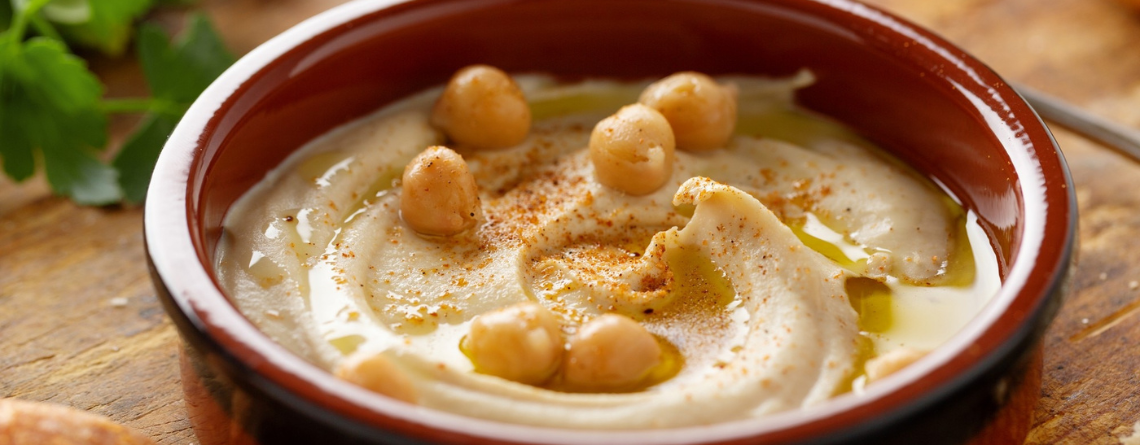
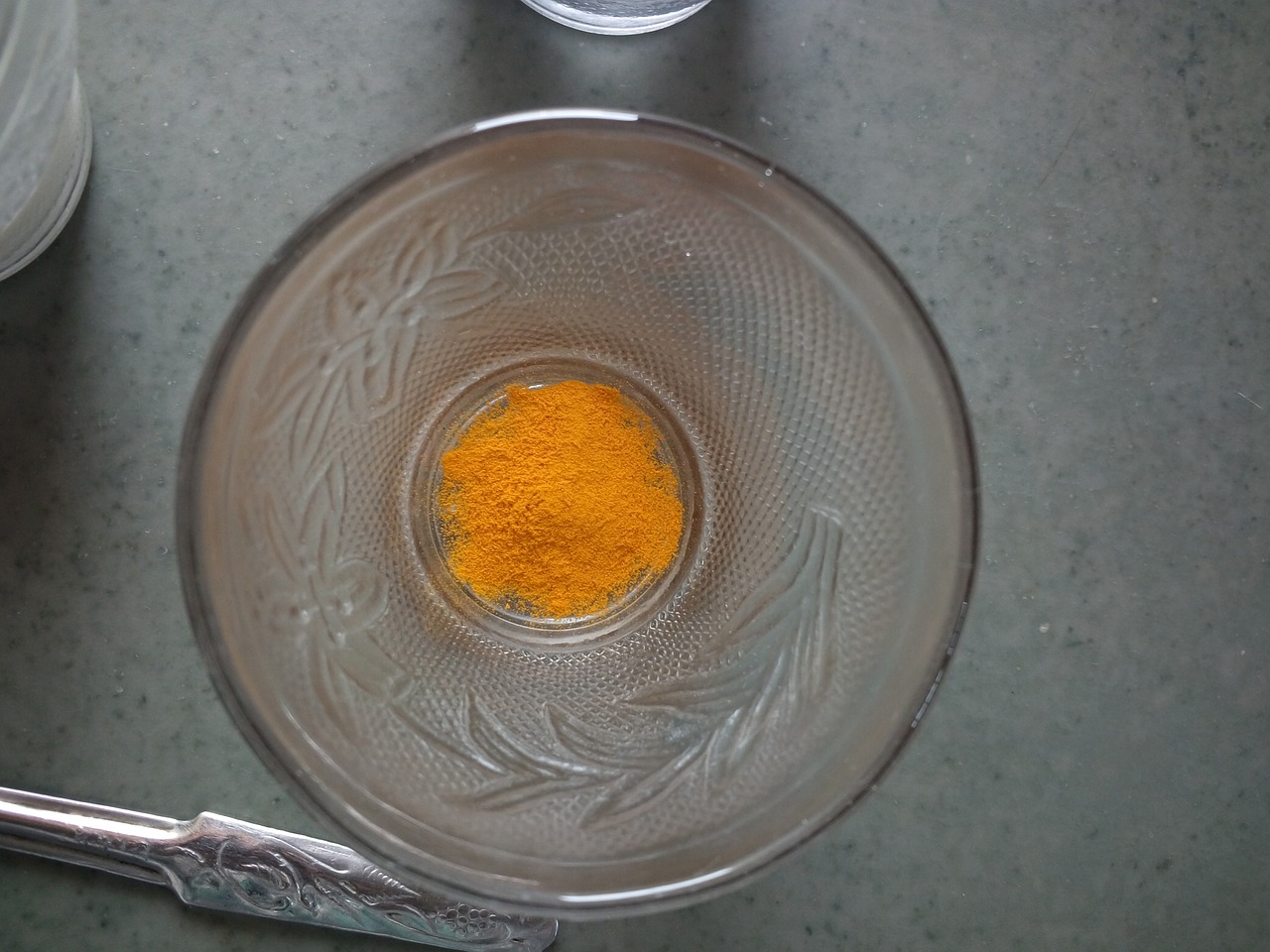
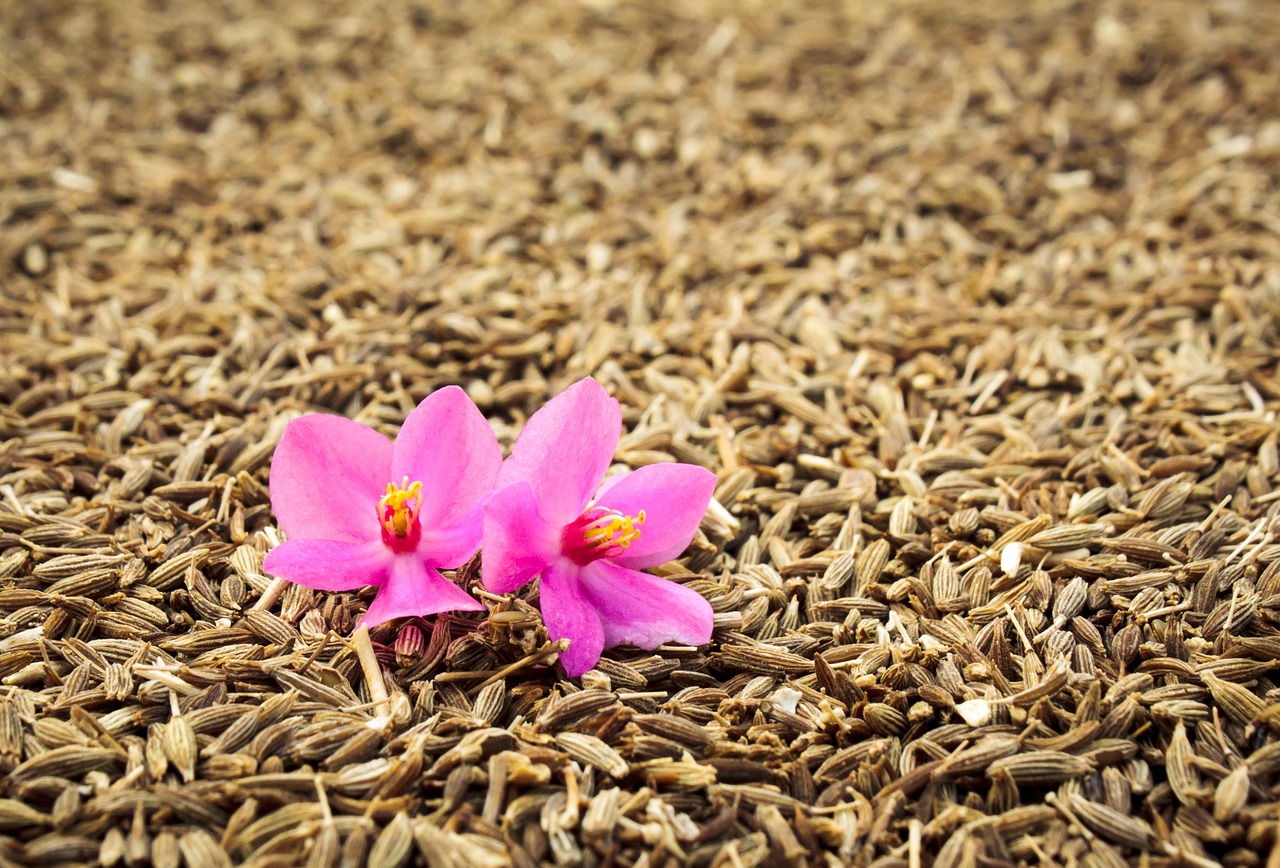
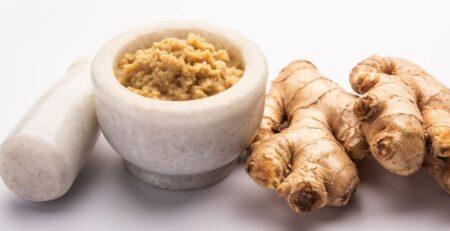
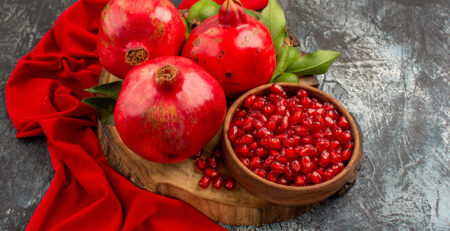

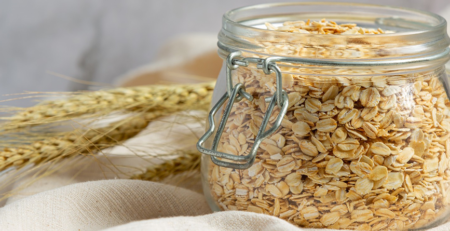

Comments (4)
I am very much interested in your videos.very good informative
Thank you
Thank you, Valsamma. Keep winning 🙂
Well I live in Dubai fortunately, I will definitely go for hummus today. I used to control.on it cuz it has too mamy calories but now I understand that that doesnt matter after all, so thnks
Glad it could inspire you to go for it. Say a prayer of gratitude and bless your meal before consuming. It can change the energy of your food 🙂